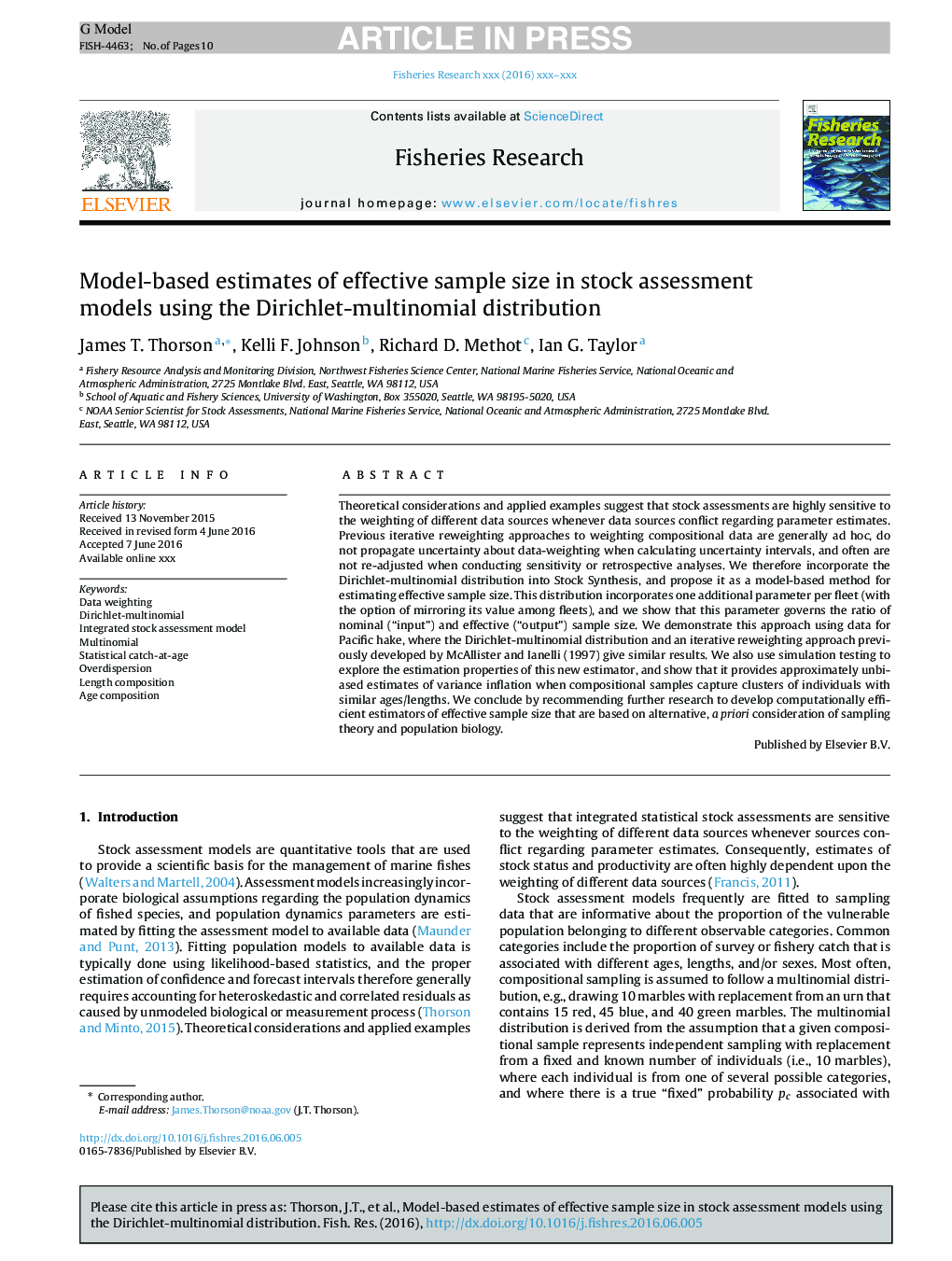| Article ID | Journal | Published Year | Pages | File Type |
|---|---|---|---|---|
| 5765461 | Fisheries Research | 2017 | 10 Pages |
Abstract
Theoretical considerations and applied examples suggest that stock assessments are highly sensitive to the weighting of different data sources whenever data sources conflict regarding parameter estimates. Previous iterative reweighting approaches to weighting compositional data are generally ad hoc, do not propagate uncertainty about data-weighting when calculating uncertainty intervals, and often are not re-adjusted when conducting sensitivity or retrospective analyses. We therefore incorporate the Dirichlet-multinomial distribution into Stock Synthesis, and propose it as a model-based method for estimating effective sample size. This distribution incorporates one additional parameter per fleet (with the option of mirroring its value among fleets), and we show that this parameter governs the ratio of nominal (“input”) and effective (“output”) sample size. We demonstrate this approach using data for Pacific hake, where the Dirichlet-multinomial distribution and an iterative reweighting approach previously developed by McAllister and Ianelli (1997) give similar results. We also use simulation testing to explore the estimation properties of this new estimator, and show that it provides approximately unbiased estimates of variance inflation when compositional samples capture clusters of individuals with similar ages/lengths. We conclude by recommending further research to develop computationally efficient estimators of effective sample size that are based on alternative, a priori consideration of sampling theory and population biology.
Related Topics
Life Sciences
Agricultural and Biological Sciences
Aquatic Science
Authors
James T. Thorson, Kelli F. Johnson, Richard D. Methot, Ian G. Taylor,
